Prepare for sudden fall of Vladimir Putin, UK told
Britain must prepare for the Russian government’s sudden collapse after the Wagner coup attempt, internal government assessments warn.
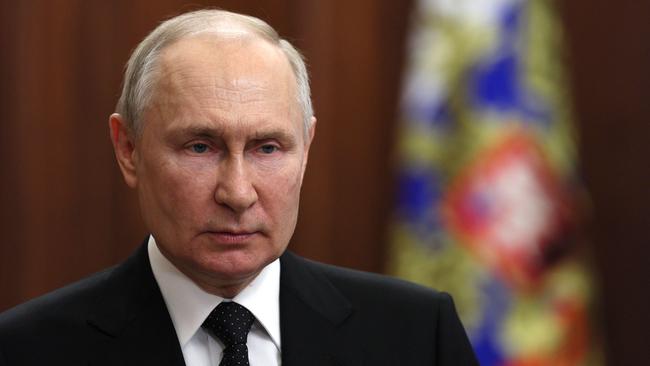
Britain must prepare for the sudden collapse of the Russian government after the weekend’s attempted coup, internal government assessments have warned.
An apparent attempt to take over the largest nuclear power in the world was narrowly avoided when Yevgeny Prigozhin, leader of the Wagner group of mercenaries, ordered them to halt a march to Moscow after a last-minute deal with the Kremlin.
President Putin, who had given a televised address vowing “brutal” retaliation against the rebels, spared Prigozhin any punishment as part of an agreement that exiled him to Belarus. Neither Putin nor his defence staff appeared in public and Prigozhin’s whereabouts remained unknown.
The speed of the weekend’s events has left British diplomats hastily preparing for different outcomes.
“From the very beginning of the invasion, one of the most obvious scenarios was that the war could lead to political unrest back home in Russia,” a senior government source said. Asked if the coup attempt could trigger a regime change in Moscow, the source said Britain “must prepare for a whole range of different scenarios”, adding: “We have to wait, watch and see what comes next. This could be Chapter One of something new.”
Antony Blinken, the US secretary of state, said that the weekend’s events exposed “real cracks” in the Kremlin.
“This was a direct challenge to Putin’s authority,” he told CBS News. “It raises profound questions.”
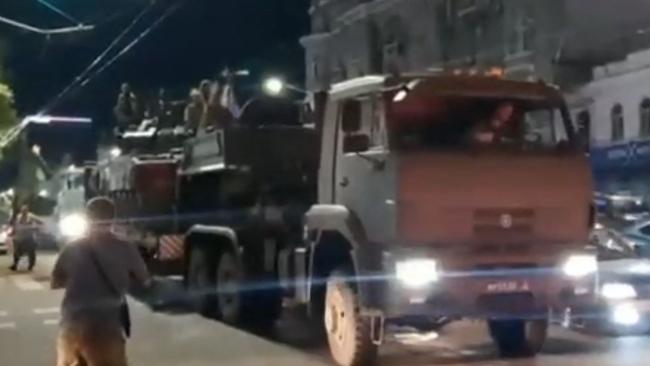
US intelligence agencies became aware of Prigozhin’s plans a few days before he ordered troops to march on the cities of Rostov-on-Don and Voronezh after months of tensions with the Russian ministry of defence.
Senior officials in the White House and the Pentagon were briefed about the prospect of an armed uprising in Russia last Wednesday, The New York Times reported.
Rather than publish the intelligence – as was done in the weeks leading up to the invasion of Ukraine last year – US agencies decided to let events in Russia play out.
A British cabinet minister said the government would not be interfering in Russia’s internal affairs. “It is obviously a very unstable situation in Russia, but it is fundamentally an internal matter,” John Glen, the chief secretary to the Treasury, said.
John Foreman, the former British defence attache in Moscow, said Prigozhin toppling Putin ranked as a “worst-case scenario”, adding: “You’ve got to be careful what you wish for. Prigozhin is not some sort of liberal, peace-loving democrat. He’s a fascist.”
Foreman, who left Moscow last autumn, indicated that the weekend’s events caught western diplomats by surprise. “Our assessment was that this was going to be gradual. It wasn’t going to be a sudden march on Moscow.”
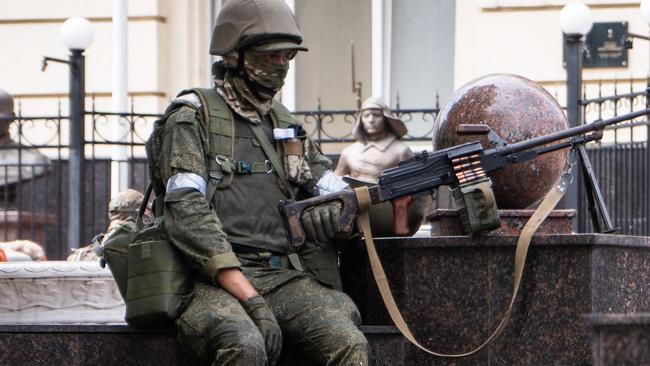
Putin’s speech was an attempt to remind Russians of the need for a strongman leader, Foreman said. The president described the uprising as smuta, a word meaning strife, which is also used to refer to the Time of Troubles, a period of lawlessness and anarchy that followed the death of Ivan the Terrible in 1584. “All Russians know immediately what he is talking about when he uses that word,” Foreman said.
Sir Roderic Lyne, a former British ambassador to Russia, said that Putin’s grip on power was weakening. He told Times Radio: “The odds on Putin remaining indefinitely in power, which is what he wants to do, have shortened … but right now he is still in charge.”
Lord Richards of Herstmonceux, former chief of the defence staff, stressed that Putin remained a powerful adversary and said the West risked “woefully underestimating Russia”. He warned that the struggling Ukrainian counteroffensive showed the continued strength of Russian defences. “Despite the weakened state, arguably, of Putin, we’re in for a long haul here,” he told Times Radio. “And that actually is the worst of all worlds for the West.
“What we should have achieved, or sought to achieve, is a much more rapid and decisive victory, full-blooded engagement last year. We failed to do this. So, in military terms, we might say we’re dribbling as opposed to clouting.
“We’re now going to risk this long drawn-out war in Europe with all the economic consequences and the destabilising consequences that will have, and I think that is probably the worst of all outcomes.”
President Nauseda of Lithuania, which will host a Nato summit next month, said that the alliance should be prepared to strengthen its eastern flank. “If Prigozhin or part of the Wagner group ends up in Belarus with unclear plans and unclear intentions it will only mean that we need to further strengthen the security of our eastern borders,” he said.
President Biden and President Zelensky discussed the situation in Russia and the Ukrainian counteroffensive in a phone call yesterday. The White House said that the US “reaffirmed unwavering support” for Kyiv, “including through continued security, economic, and humanitarian aid”.
The Times


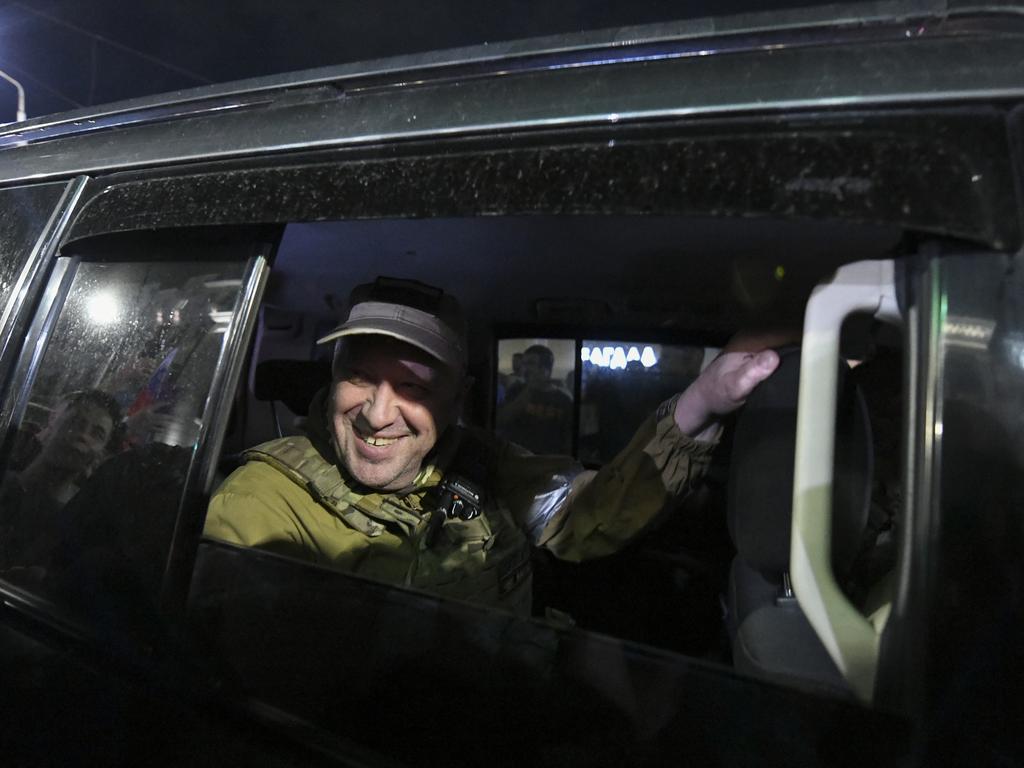

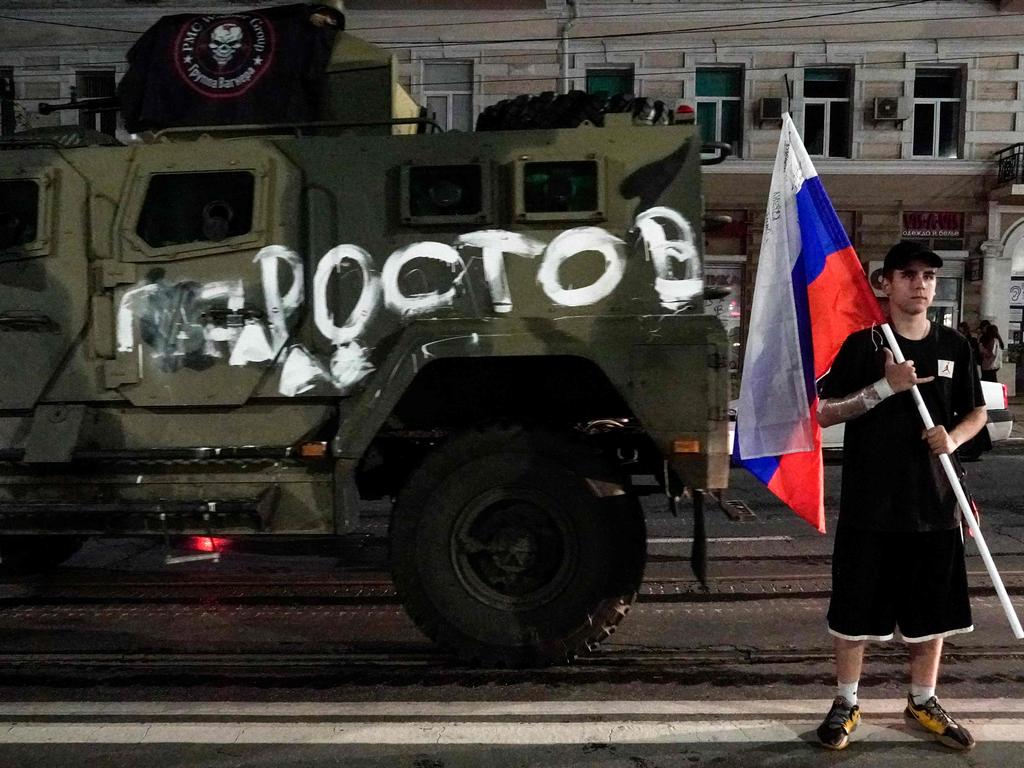


To join the conversation, please log in. Don't have an account? Register
Join the conversation, you are commenting as Logout